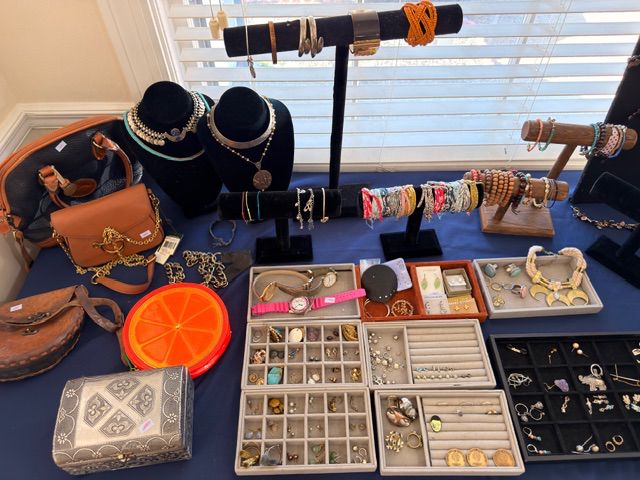After the loss of a loved one, the journey through grief is deeply personal and rarely follows a predictable path. Among the many challenges that arise during this difficult time, deciding what to do with their remaining belongings can often become an overwhelming task filled with emotion and uncertainty. At Estate Greats, we understand this delicate process, and below is how we help provide a guide to processing grief and possessions.
Our team specializes in helping families navigate the practical aspects of managing a loved one’s possessions with sensitivity and care, allowing you to focus on your emotional journey while we handle the logistics with professionalism and respect.
Understanding the Emotional Landscape of Grief
Grief doesn’t follow a linear timeline. Some days may feel manageable, while others bring waves of emotion that can be triggered by encountering personal items—a favorite sweater still hanging in the closet, a collection of books carefully arranged on shelves, or kitchen tools that tell the story of countless meals shared together.
There is no “right” way to cope with grief. Psychologists often speak about the stages of grief—denial, anger, bargaining, depression, and acceptance—but these stages aren’t a checklist to complete in order. They’re experiences we may revisit repeatedly as we process our loss. Understanding this can help us be more compassionate with ourselves when making decisions about a loved one’s possessions.
Approaching Your Loved One’s Belongings
While there’s no rulebook for how best to handle a loved one’s possessions, these approaches may help you navigate this challenging aspect of loss:
- Take your time. Unless there are pressing logistical reasons to clear out belongings quickly, allow yourself space to make these decisions when you feel emotionally ready.
- Start small. Begin with less emotionally-charged areas rather than diving into personal items that may trigger intense feelings. Perhaps start with a garage or utility room before tackling bedrooms or personal spaces.
- Honor their memory meaningfully. Consider creative ways to preserve memories without keeping everything. Photo albums of cherished collections, memory quilts made from clothing, or displaying one representative item rather than an entire collection can help honor their legacy while creating space.
- Invite support. Having trusted friends or family members join with sorting can provide both emotional support and practical help during this process.

When Estate Sales Offer Relief
For many families, the sheer volume of possessions can become overwhelming, especially when combined with the emotional weight of decision-making during grief. This is where professional estate sale services from Estate Greats can provide invaluable support. An estate sale allows families to reduce the decision fatigue that comes when you’re already emotionally exhausted and facing hundreds of small decisions about items. Estate sale professionals understand the market value of possessions and can ensure that belongings are priced appropriately, removing the uncertainty of whether you’re making fair decisions.
Estate Greats understand the deeply emotional nature of our work and approach it with sensitivity, treating each item with the respect it deserves. You can find comfort in knowing that your loved one’s belongings will go to new homes where they’ll be appreciated, rather than sitting in storage indefinitely or being discarded without consideration. Perhaps most importantly, by delegating the logistics of dealing with possessions, you can direct your limited emotional energy toward processing your grief and preserving the most meaningful connections to your loved one.
Estate Greats Can Help
The path through grief is never easy, but approaching the practical aspects with intention and support can provide unexpected moments of healing. Remember that caring for yourself through this process is just as important as honoring your loved one’s memory. Whatever approach you choose—whether handling everything personally or seeking professional support—honor your own needs and boundaries along the way.
Your journey through grief is uniquely yours, and finding the right balance between preserving memories and creating space for your own healing is perhaps one of the most profound acts of self-care during this challenging time. To find out if partnering with Estate Greats is the right move for you, fill out our form or email us at info@estategreats.net.



